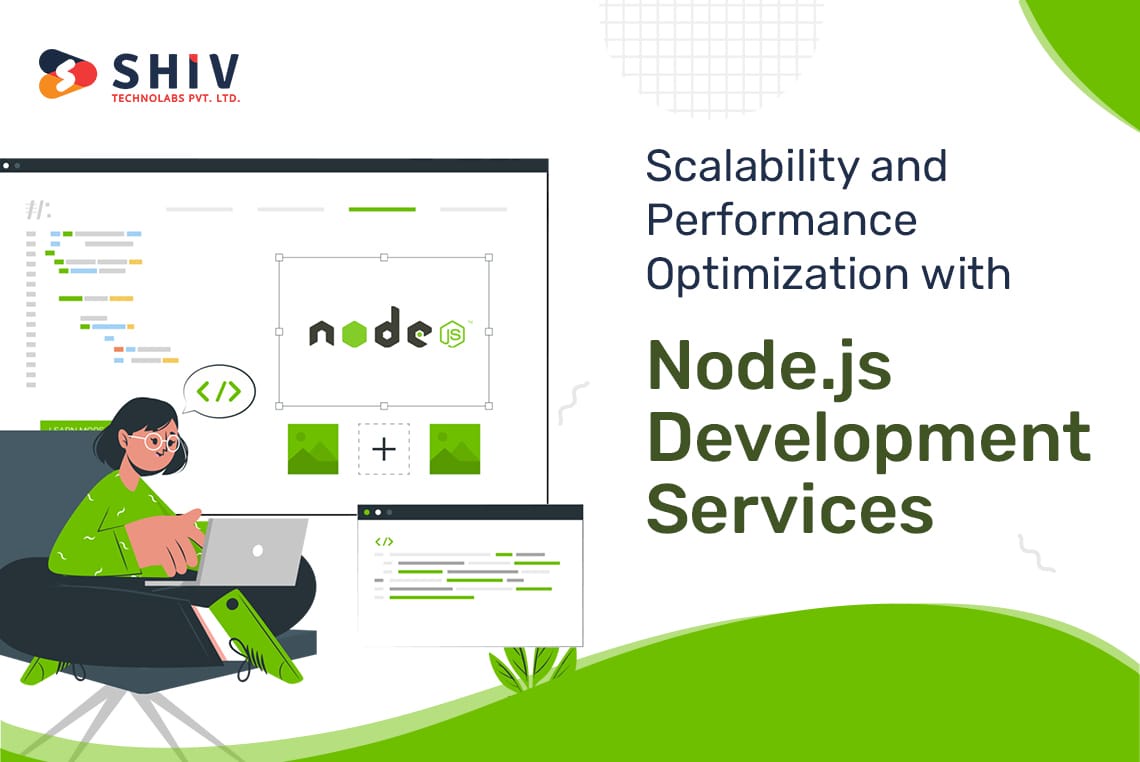In our tech-driven world, Node JS development services have become a pivotal game-changer for the web and mobile app development industry. Thanks to its simplicity, scalability, and unmatched performance, Node.js stands out. In this post, we'll delve deeper into Node.js, particularly focusing on its scalability and how to optimize its performance.
Node.js: A Quick Look

Node.js is an open-source, cross-platform runtime environment that enables JavaScript code to run outside of a browser. Powered by Chrome's V8 JavaScript engine, Node.js provides an effective platform for building quick and scalable network applications.
It uses an event-driven, non-blocking I/O model, which makes it lean and efficient. As per the Statista survey, Node.js has surpassed React.js as the preferred web framework among programmers around the world.
A Node JS development company harnesses this tech to create highly scalable apps. These can handle thousands of concurrent connections with high throughput. The non-blocking feature of Node.js is the secret to scaling up these many connections with minimal hardware needs.
The Scalability Factor in Node.js

The first thing any Node JS development agency needs to think about when building apps is scalability. So, how does Node.js promote scalability?
1. Cluster Module
The cluster module is a basic way to scale Node.js apps. It lets you create child processes (workers) that share server ports with your main process.
By using the multi-core system, you can start a new child process for each core. This makes your app more scalable. These child processes are managed by the main process, guaranteeing efficient load balancing among different service requests.
2. Microservices Architecture
Another method that Node JS Development Services use to scale apps is the Microservices architecture. This involves splitting a large app into smaller, loosely connected services that can be built, deployed, and scaled on their own. Each microservice runs its process, allowing for horizontal scaling and thus, enhancing app performance.
3. Serverless Architecture
A Node JS development agency may also use Serverless architectures to achieve scalability. In a serverless setting, the service provider automatically takes care of the system resources, and you only pay for the compute time you use. This architecture allows apps to be automatically scaled based on demand, reducing operational costs and boosting performance.
Performance Tuning in Node.js
Besides scalability, a Node JS development company will also closely focus on performance tuning. High-performing apps lead to a better user experience and increased customer satisfaction. Hire NODE JS Developers at affordable prices. Here are some strategies used to fine-tune performance in Node.js:
1. Adopt the Latest Node.js Version
Every Node.js version comes with performance enhancements and new features. Therefore, adopting the latest version is a simple way to fine-tune your app performance.
2. Use Caching
Caching is a technique any proficient Node.js development agency uses to greatly Improve app performance. By storing frequently used data in a 'cache' or a speedy-access data storage layer, you can cut down the time taken to fetch data from primary storage areas, which are typically slower.
3. Optimize Database Queries
Badly optimized database queries can severely affect app performance. Optimization methods like using indexes correctly, limiting the fields in your queries, and paginating results can greatly boost app speed and efficiency.
4. Employ Gzip Compression
Gzip is a method to compress files for faster network transfers. It is especially beneficial for reducing the size of HTML, CSS, and JavaScript files, which directly enhances the loading speed of your web pages.
5. Avoid Synchronous Code
Since Node.js is single-threaded, blocking the main thread can severely affect the performance of your app. Therefore, a Node.js development company always prefers asynchronous code over synchronous code. This allows multiple operations to run at the same time without blocking the main thread.
6. Use Tools for Performance Monitoring
Several tools like PM2, Node.js Clinic, and Nodemon provide detailed insights into the performance of your Node.js app. These tools allow you to actively track and fix performance issues.
Wrapping Up
The search for the most scalable and high-performing apps leads us to Node JS development services. The platform's non-blocking I/O model, coupled with efficient resource management, allows for robust apps that can manage hefty loads without a hiccup. And remember, picking the right Node.js development company could be the deciding factor between an app that merely works and one that performs exceptionally well on a large scale.


No comments yet